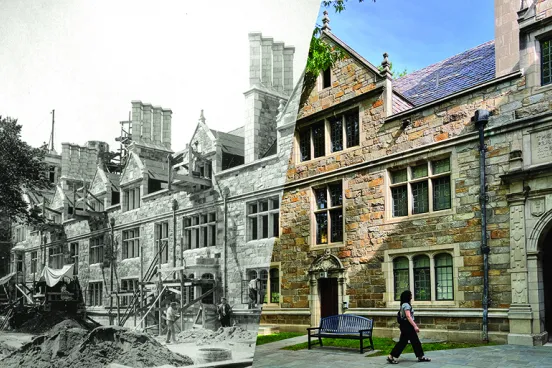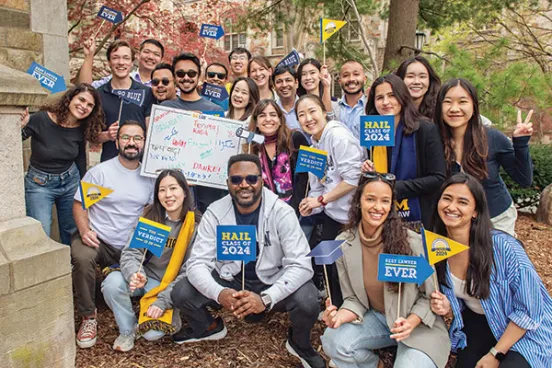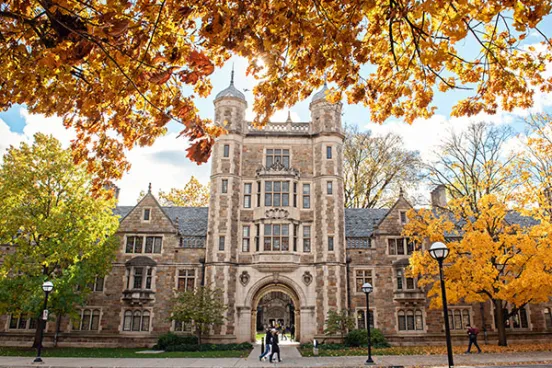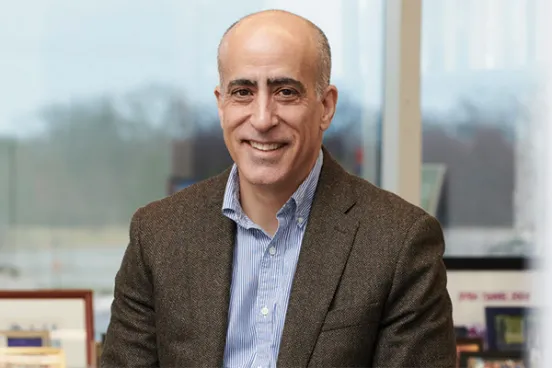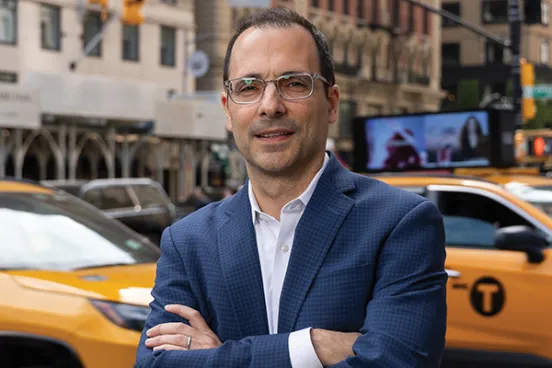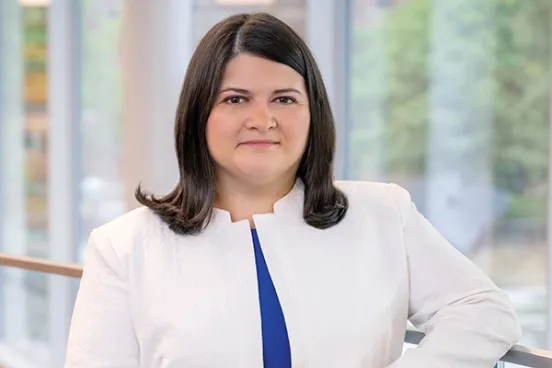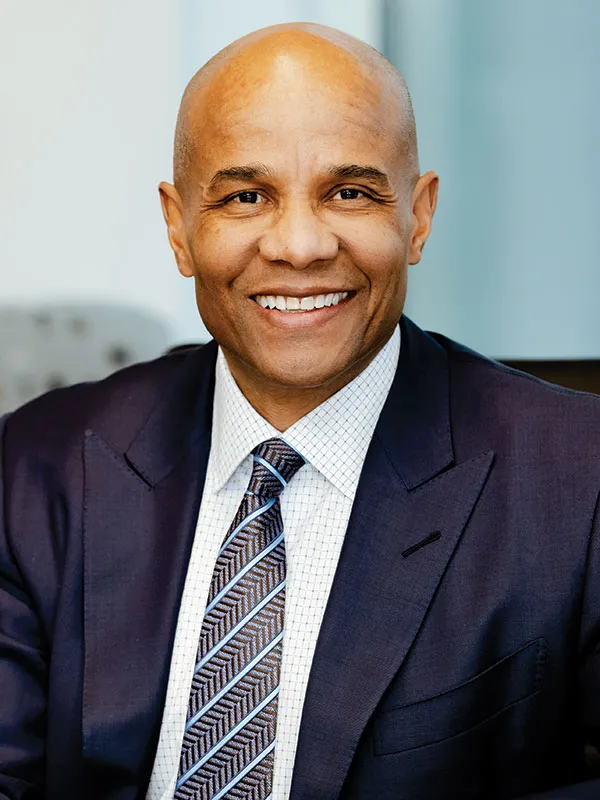
In the mid-1900s, it was almost unheard of for a Black man like Clarence L. Robinson to climb the ranks from mail clerk to chief legal officer. Robinson’s success against the odds inspired his grandson, Ernest Newborn, ’83, who has spent his career building on that legacy with in-house leadership roles at a number of major American corporations.
“My grandfather was bigger than life for me,” Newborn says. “He was the general counsel of a steel company in Youngstown, Ohio, and my original inspiration to become a lawyer.”
Newborn had something of an itinerant childhood. His father was a minister and moved to a new congregation every three to five years. Adjusting to new environments and communities was among the few constants in Newborn’s early life.
His father joined a congregation in Washington, DC, in the late 1960s during a period of rapid social and political change. It was then that Newborn began to think more seriously about pursuing a legal career.
“I spent the weekends in the basement of a church downtown with Vietnam War protestors and civil rights activists,” he says. “That experience taught me how social, political, and economic change, for the better, can happen faster and more meaningfully through the efforts of lawyers and people who understand the political system.”
After graduating from Drake University, Newborn matriculated at Michigan Law, and his legal trajectory began to take shape. Like his grandfather, he found himself drawn toward business.
Ernest Newborn, ’83The Law School is a special place—an institution and community equipped to prepare our future leaders as they seek to tackle the tough problems we have in our world, as a country, and in our communities.
“At Michigan, I was introduced to the corporate side of law,” he recalls. “Once I started my career, I found I liked it. My practice shifted from labor and employment law to the value-creating world of corporate securities and mergers and acquisitions, which ultimately defined the rest of my career.”
By the late 1990s, Newborn had developed expertise in the insurance industry and became general counsel of Acordia, a public insurance brokerage firm. That role led to a change in scenery when he was recruited to join a new insurance brokerage and consulting firm called USI Insurance Services.
“The position was in San Francisco, and I always wanted to be in California,” he says. “I thought I was going to be at the company for, at most, five years, but I’m still here 25 years later.”
USI has undergone significant change over the years. Initially owned by a consortium of insurance companies, the firm was public for five years before going private through a series of private equity-sponsored acquisitions—and Newborn was there through it all.
Despite the demands of his role, he makes a point of staying engaged with issues that are important to him. Newborn is a longtime member of the board of trustees for Strada Education Foundation and has also served as chairman. “I look forward, at some point in time, to hanging up the corporate hat and getting even more involved in activities that create value for our society,” he says.
Newborn credits Michigan Law for the opportunities afforded to him and has long been a proponent of paying it forward. He has served as an honorary chair for Michigan Law’s Black Alumni Reunion and is a member of the Law School’s Distinguished Alumni Award Review Committee.
He recently made a gift of $125,000 in honor of his 40th Reunion to support today’s law students. The gift is in addition to a scholarship fund he previously established with his classmate Broderick Johnson, ’83, who also serves as an adjunct professor at the Law School. Newborn’s recent gift brings his total giving to more than $300,000.
“My relationship with the University of Michigan is a lifetime commitment,” Newborn says. “The Law School is a special place—an institution and community equipped to prepare our future leaders as they seek to tackle the tough problems we have in our world, as a country, and in our communities.”


